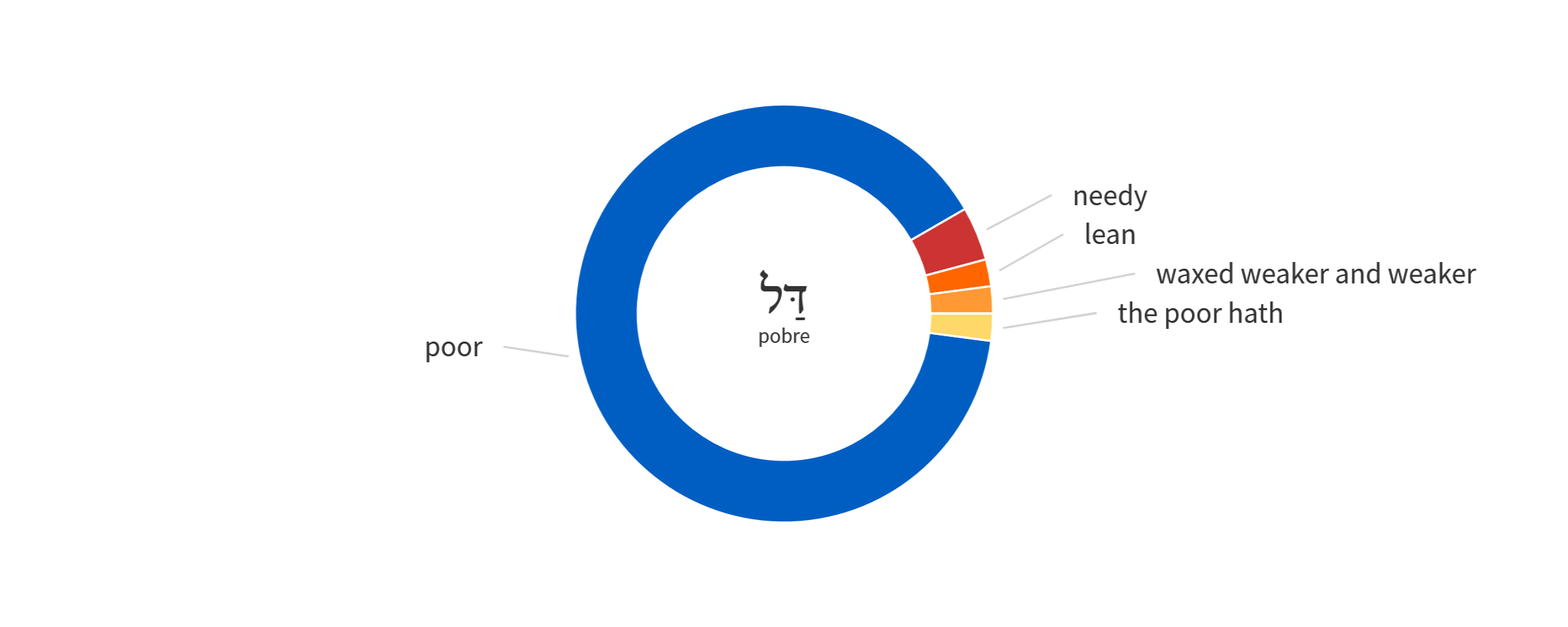A better translation is "weak" or "helpless". The LEB uses helpless. The reason for this is because of the overall context of the verse. If the verse said something like God will give dal bread, then one can interpret dal to be someone poor in bread. But if the verse is God will exalt/lift dal, then the better interpretation is someone who considers themselves to be lowly or weak. And then if you add in the context that they are being lifted up from dust or raised from the ash heap, then one sees a connotation of resurrection or deliverence that is traditionally applied to those who humble themselves.
Looking at the psalm overall, here is the LEB:
Yahweh is high (r-w-m) above all nations;
his glory is above the heavens.
Who is like Yahweh our God, who is enthroned on high,
who condescends (make low) to look at what is in the heavens and in the earth?
God is high, and he lowers Himself even when looking on what is in the heavens and earth (e.g. his creation). So this is again a high/low Psalm.
He *raises (q-w-m) the dal from the dust (afar);
Man is called dust (afar) and will return to dust. So this is an allusion to Genesis 3 in which God is the one who is declaring that man is dust. Yet Here God is talking about raising from the dust. This is a reversal, referring to resurrection or deliverance. Note that the word for raises is also used to establish a covenant, so an alternate translation might be "He establishes the helpless from the dust (afar)". Thus "poor" here could be translated as "lacking life", "lacking hope". LEB decides to use "helpless" or "lacking power/ability".
he lifts (r-w-m) the needy (evyon) from the ash heap,
to seat them with princes, with the princes of his people.
So r-w-m is the parallel of q-w-m, both referring to lifting up, but one with the connotation of establishing and the other with a connotation of exalting. The establishing is with the helpless who are in the dust, and the exalting is with the needy who are in the ash-heap. The reference to needy is a better candidate for those who are financially poor, but again, the reference to ash heap and establishment requires an interpretation that is a bit deeper than God paying someone's electric bill. I think the english word "worthless" would be a better translation than needy as it would cover "having no financial assets" but it would more generally cover having nothing anyone thought was of value. Thus, having no physical beauty, etc.
Here, "ash heap" is a reference to something of no value, as after the sacrificial animals were burned (and the smoke ascended to God) some of the meat (for some offerings) was eaten by men, but the ash was removed and thrown into the ash heap outside the camp. It is what has been rejected as useless to everyone. When people repent, they put dust and ashes on their head signifying that they are but dust and they are in the ash heap -- they reckon themselves dead and worthless. Yet here, from this very rejected pile, God is lifting up/exalting/making and they therefore sit down with Princes.
He causes the barren woman of the house to dwell as the happy mother
of children.
In the Old Testament (and even rabbinical Judaism) barrenness was caused by God because God was responsible for each act of birth. That is, conception is always a miracle. So someone who is barren is suffering from divine judgement. But then again a reversal happens where God turns that unhappy situation into one of happiness, by bringing new life into the woman.
So all three of these verses show a reversal and are thus symbols of resurrection/deliverance, but who is resurrected? Those who are "low", "meek", "helpless", "needy". Those who mourn. Those who consider themselves worthless.
This is a common theme in the scriptures
Psalm 147.6 "The LORD lifteth up the meek: he casteth the wicked down to the ground."
James 4.10 "Humble yourselves in the sight of the Lord, and he shall lift you up."
Psalm 75:4-7
I say to the boastful, ‘Do not boast!’ and to the wicked, ‘Do not lift
up your horn! Do not lift up high your horn. Do not speak with
arrogant pride.’ ” For it is not from the east or the west and not
from the south that lifting up comes, rather God is the judge; one he
brings low, and another he lifts up.
Psalm 138.6
Though Yahweh is high, yet he sees the lowly, but the proud he
perceives at a distance.
